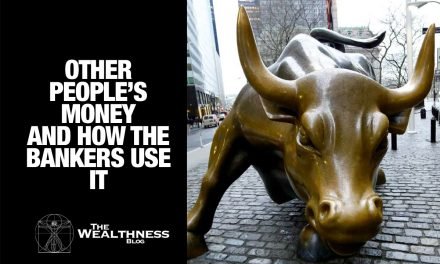The Enduring Relevance of Charlie Chaplin’s “The Great Dictator” Speech
In the tumultuous year of 1940, as World War II raged across Europe, Charlie Chaplin unveiled a cinematic masterpiece that would cement his legacy as more than just a comedic genius. “The Great Dictator,” a daring satire that boldly mocked Adolf Hitler and the Nazi regime, culminated in a powerful speech that transcended its era to become a timeless call for humanity, democracy, and peace.
The Final Speech: A Plea for Unity and Progress
As the film reaches its climax, Chaplin steps out of his role as the hapless Jewish barber to deliver a profound monologue directly addressing the audience. In this iconic scene, he passionately implores:
“I don’t want to rule or conquer anyone. I should like to help everyone – if possible – Jew, Gentile – black man – white. We all want to help one another. Human beings are like that…” [1]
With these opening lines, Chaplin sets the tone for a speech that rejects the divisive ideologies of hatred and oppression, instead advocating for a world united in its shared hopes and aspirations.
He continues, painting a vision of a future where humanity’s incredible potential is harnessed for the greater good:
“You, the people, have the power to make this life free and beautiful, to make this life a wonderful adventure…Let us fight for a world of reason, a world where science and progress will lead to all men’s happiness.” [1]
In an era defined by the horrors of war and the rise of authoritarian regimes, Chaplin’s words offered a beacon of hope – a reminder that the path to true progress lies not in conflict and subjugation, but in the pursuit of knowledge, understanding, and collective betterment.
Relevance in the Modern Age
Over eight decades later, Chaplin’s impassioned plea for unity and reason still resonates profoundly. In a world grappling with resurgent nationalism, political polarization, and existential threats like climate change, his message serves as a poignant reminder of the shared values that should unite humanity.
“We think too much and feel too little,” Chaplin laments in the speech, a sentiment that rings true in an age where discourse is often dominated by cold calculation and tribalism rather than empathy and compassion [1].
Moreover, his warning against the dangers of unchecked hatred and intolerance remains as relevant as ever. “Only the unloved hate – the unloved and the unnatural!” he proclaims, a powerful rebuke to the ideologies of division and discrimination that continue to plague societies worldwide [1].
Echoing Through History
The enduring impact of Chaplin’s speech is evident in the way it has resonated across generations and inspired countless individuals and movements. In the turbulent 1960s, his call for unity and progress found new life as a rallying cry for the civil rights movement and the fight against social injustice.
Decades later, his words would again find profound relevance during the pivotal moments of the Cold War’s end and the fall of the Berlin Wall – events that embodied the triumph of democracy and freedom over oppression and authoritarianism, ideals championed in Chaplin’s speech.
As Jeffrey Vance, a renowned Chaplin biographer, notes, “The most enduring aspects of the final speech are its aspirational quality and tone and its underlying faith in humanity.” [3] It is this unwavering belief in the inherent goodness of the human spirit that has allowed Chaplin’s message to transcend the boundaries of time and circumstance.
A Timeless Rallying Cry
In our modern era, beset by challenges that span the political, social, and environmental realms, Chaplin’s speech stands as a powerful reminder of the values that must guide humanity’s path forward.
“Let us fight for a world of reason, a world where science and progress will lead to all men’s happiness,” he implores, a sentiment that resonates deeply in the face of existential threats like climate change, where reason, scientific understanding, and collective action are imperative [1].
His call to “do away with national barriers” and embrace a spirit of global unity and cooperation has newfound urgency in an increasingly interconnected world grappling with transnational challenges that demand international cooperation and solidarity.
Perhaps most poignantly, Chaplin’s exhortation to “fight for a decent world that will give men a chance to work – that will give youth a future and old age a security” strikes at the heart of the socioeconomic inequalities and generational divides that continue to plague societies worldwide [1].
A Legacy of Hope and Inspiration
As the world grapples with the complexities of the 21st century, Charlie Chaplin’s “The Great Dictator” speech remains a powerful testament to the enduring strength of hope, unity, and the indomitable human spirit.
In the face of hatred, oppression, and the forces that seek to divide humanity, Chaplin’s words serve as a rallying cry – a reminder that the path to a better world lies not in conflict and subjugation, but in the pursuit of reason, progress, and a shared commitment to the ideals of democracy, freedom, and human dignity.
As Robert Keusen, reflecting on the speech’s significance, eloquently states, “It is precisely in such times that civil society must speak out and stand up for democracy, freedom, peace, sustainability, human rights, species and climate protection, the rule of law, freedom of the press, social justice and the values of the Enlightenment.” [4]
In this spirit, Chaplin’s legacy endures, inspiring generations to come to embrace the timeless values that underpin a just, equitable, and harmonious world. For in the face of adversity and the forces that seek to divide us, his clarion call for unity, reason, and unwavering hope remains as powerful and relevant as ever.
Citations
- Chaplin, Charlie. “The Final Speech from The Great Dictator.” Charlie Chaplin, www.charliechaplin.com [1]
- “Why Charlie Chaplin’s Great Dictator Speech is Still Relevant Today.” YouTube, uploaded by The Film Archives, www.youtube.com [2]
- Vance, Jeffrey. “The Great Dictator.” Library of Congress, www.loc.gov [3]
- Keusen, Robert. “Charlie Chaplin’s Great Speech to the World Is an Inspiration and a Source of Hope.” LinkedIn, 18 Mar. 2022, www.linkedin.com [4]
NO ROAD IS LONG WITH GOOD COMPANY – TAKE A COUPLE OF MINUTES OUT FROM ALL THE NOISE IN YOUR DAILY SCHEDULE, PUT YOUR FEET UP, AND LET’S ALL GROW TOGETHER!
Wealthness … How do you sum it up? Celebrating the majesty of life, 1ness and the infinite power of I. It is organic, a living blueprint of real-world strategies, systems and paradigms, features and benefits springing fully-grown from the brow of Zeus; an assimilation of many different projects and experiences. It’s a comprehensive resource designed to empower. It’s life tools created to enhance personal effectiveness … and to ensure ultimate success in the path YOU choose.









